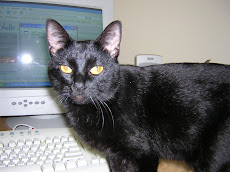Some editions of the book have the following questions in the back. This is an edited list:
1. The novel begins and and ends with kite running. Why does the author choose to frame the novel with these scenes? Refer to the following passage: " Afghans like to say: Life goes on, unmindful of beginning, end . . . crisis or catharsis, moving forward like a slow, dusty caravan of kochis [nomads]." How is this significant in framing the novel?
2. The pomegranate tree is important to Amir and Hassan; they spend hours reading and playing there: "One summer day, I used one of Ali's kitchen knives to carve our names on it: 'Amir and Hassan, the sultans of Kabul.' Those words made it formal: the tree was ours." In a letter to Amir later in the story, Hassan mentions that "the tree hasn't borne fruit in years." Discuss teh significance of this tree.
3. What is the significance of the irony in the firest story that Amir writes? Afer hearing Amir's story, Hassan asks, "Why did the man kill his wife? In fact, why did he ever have to feel sad to shed tears? Couldn't he have just peeled onions?" How is his reaction to the story a METAPHOR for Amir's life? How dose this story epitomize the difference in character between Hassan and Amir?
4. On Amir's trip back to Afghanistan, he stays at the home of his driver, Farid. Upon leaving he remarks: "Earlier that morning, when I was certain no one was looking, I did something I had done twenty-six years earlier: I planted a fistful of crumpled money under a mattress." Why is this moment so important to Amir's journey?
5. When does Amir finally stand up for himself?
6. Amir and Hassan have a favorite story. Does the story have the same meaning for both men? Why does Hassan name his son after one of the characters in the story?
7. When Amir discovers that his father has lied to him, he realizes that "as it turned out, Baba an dI were more alike than I'd ever known." How does this make Amir feel about his father? How is this both a negative and a positive realization?
Subscribe to:
Post Comments (Atom)


No comments:
Post a Comment
Your Comment Is Always Welcome: